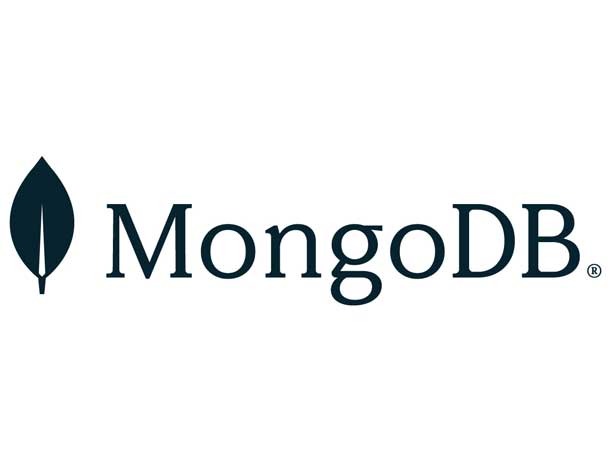MongoDB Targets Next-Gen AI Development With New Database Search Capabilities
The cloud database vendor continues to extend its strategic alliances with key vendor partners, integrating its Atlas Vector Search with AWS Bedrock and the Atlas database with Informatica’s master data management software-as-a-service offering.

MongoDB’s Atlas Vector Search and Atlas Search Nodes software, generally available starting today, makes it easier for businesses to develop next-generation applications that leverage generative AI technology and proprietary data, according to the cloud database provider.
Today’s GA announcement comes on the heels of last week’s news that MongoDB has integrated Atlas Vector Search with Amazon Web Services’ Amazon Bedrock generative AI platform to speed the development of generative AI-powered applications on the AWS platform.
The recent developments are MongoDB’s latest moves to expand the application development capabilities of MongoDB Atlas for generative AI applications amid the growing use of the cloud database as an integrated developer data platform.
[Related: Database Migration, AI Initiatives Highlight MongoDB Developer Event]
“With the general availability of MongoDB Atlas Vector Search and MongoDB Atlas Search Nodes, we’re making it even easier for customers to use a unified, fully managed developer data platform to seamlessly build, deploy, and scale modern applications and provide end users with the types of personalized, AI-powered experiences that save them time and keep them engaged,” said Sahir Azam, MongoDB Chief Product Officer, in a statement.
MongoDB Atlas Vector Search simplifies bringing generative AI and semantic search capabilities into real-time applications for more engaging, customized end-user experiences using an organization’s operational data, according to the vendor.
Unlike an add-on solution that only stores vector data, MongoDB Atlas Vector Search powers generative AI applications by functioning as a highly performant and scalable vector database with the added benefits of being integrated with a distributed operational database that can store and process all of an organization’s data.
MongoDB Atlas Search Nodes provide dedicated infrastructure for applications that use generative AI and relevance-based search to scale workloads independent of the database and manage high-throughput use cases for greater flexibility, performance and efficiency.
Atlas Search Nodes provide dedicated infrastructure for managing generative AI and relevance-based search workloads that use MongoDB Atlas Vector Search and MongoDB Atlas Search independent of the core operational nodes of their database – enabling workload isolation, cost optimization, and better performance at scale, the company said.
In September MongoDB unveiled new AI-powered developer capabilities including MongoDB Relational Migrator for converting SQL to MongoDB Query API syntax, MongoDB Compass that generates queries and aggregations from natural language, MongoDB Atlas Charts for creating data visualizations from natural language, and a new AI chatbot feature in MongoDB Documentation.
“Customers of all sizes from startups to large enterprises around the world tell us they want to take advantage of generative AI and relevance-based search to build next-generation applications that reimagine how businesses find ways to deeply personalize engagement with their customers, drive increased efficiency through automation, and propel new product development,” Azam said. “But these customers know that complexity is the enemy of speed, and the choice of a database is fundamental to ensuring not just the success of an application but also how fast it can be built, deployed, and continually updated with the flexibility and scale needed to meet shifting end-user demands.”
At last week’s Amazon Web Services re:Invent conference MongoDB and AWS said they are expanding their already-significant alliance by integrating Atlas Vector Search with Amazon Bedrock – the cloud giant’s generative AI platform – to speed the development of next-generation applications that incorporate generative AI capabilities.
Because MongoDB Atlas Vector Search uses an organization’s operational data, its integration with Amazon Bedrock will simplify the development of applications with generative AI and semantic search capabilities that can perform complex tasks and deliver responses based on proprietary data, MongoDB said.
In recent years MongoDB has established comprehensive relationships with the major cloud platform providers – AWS, Google Cloud, Microsoft and Alibaba– even though some of them offer cloud database products that compete with MongoDB Atlas.
“It starts with engineering integration. If you can make your platform run best on a hyperscaler by integrating into their other native services, it really diffuses the competition talk because customers just want a great experience,” said Alan Chhabra, MongoDB executive vice president of worldwide partners, in an interview with CRN.
In July MongoDB and Microsoft unveiled a significant expansion of a multiyear partnership agreement that included easier customer access to MongoDB Atlas within the Microsoft commercial marketplace, deepener technical integrations between the two vendors’ products, and the creation of developer enablement and training programs. MongoDB also supports the Microsoft Semantic Kernal for integrating large language models like OpenAI, Azure OpenAI and Hugging Face.
Support for such linkages, along with the ability of the MongoDB Atlas database to combine meta operational and vector data (the latter key to leveraging large language models), “is the real story around MongoDB in AI. That really resonates with our customers,” Chhabra said.
Last week MongoDB also announced an expanded global strategic partnership with data management provider Informatica through which customers can use the MongoDB Atlas cloud database and Informatica’s master data management (MDM) software to build cloud-native, data-driven, industry-specific applications.
The two companies have previously collaborated on joint systems for financial services, insurance and healthcare customers by linking MongoDB Atlas with Informatica’s MDM software and its domain-specific applications including Customer 360, Product 360, Supplier 360 and Reference 360.
“Given we already leverage the performance and scale of MongoDB Atlas within our cloud-native MDM SaaS solution and share a common focus on high-value, industry solutions, this partnership was a natural next step,” said Rik Tamm-Daniels, Informatica group vice president of strategic ecosystems and technology, in a statement. “Now, as a strategic MDM partner of MongoDB, we can help customers rapidly consolidate and sunset multiple legacy applications for cloud-native ones built on a trusted data foundation that fuels their mission-critical use cases.”